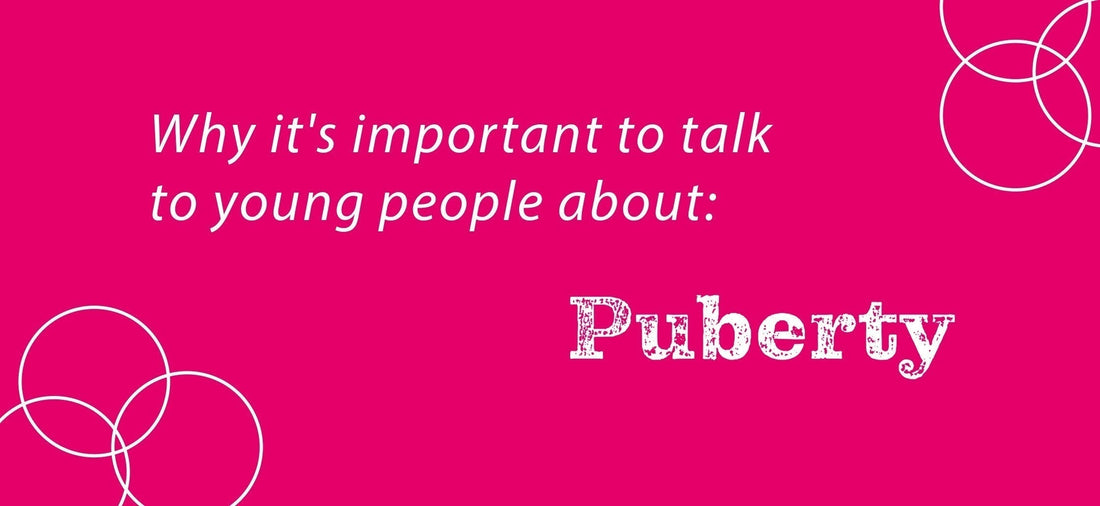
Why it's important to talk to young people about Puberty
Puberty education is a fundamental part of a teen's learning. It is the base for nearly all sex and relationship education (RSE), as well as other areas of the curriculum, and the first point on which these topics can be expanded. Topics such as consent, safety, healthy relationships, mental health, and human rights all have foundations in puberty education.
Teaching about puberty normalises the physical and emotional changes taking place in a student’s body. Not only will they know what to expect but also be prepared when these changes do happen (things like being equipped and ready for when they start their period, and able to ask for help if they need it). Discussing puberty and bodily changes also plays a huge role in reducing anxiety in teens about what to expect and what is happening.
As well as physical changes, puberty education also encompasses feelings and emotions. Discussions about hormonal changes, mood and behavioural changes, as well as sexual interest, attraction, and sexual relationships.
Using anatomical terminology
By informing teens of the correct anatomical terms for genitals, young people can make informed choices, express and explain any medical health issues they might be experiencing clearly, and ask questions more easily on anything they do not understand. Using terms such as vulva, vagina, penis, testicles, foreskin, promotes body awareness, builds confidence and certainty, and allows them to have bodily autonomy.
Having this vocabulary is also hugely important when it comes to consent. Knowing what is private and what is public, and being able to express what they do and do not want.
Knowing the correct names for their body parts also helps when it comes to discussing safety and relationships, and enables young people to talk about any inappropriate touch or behaviour they may have experienced. Studies have shown that
Why teaching mixed-sex classes is important
It is important for teens to be informed on all parts of puberty education, not only the information that could be relevant to them. Understanding how other people’s bodies are changing, not just their own, and knowing what other people are experiencing increases empathy, and reduces stigma and embarrassment.
It is also vital that puberty education is taught in an inclusive way. Trans, non-binary, and gender expansive students could be negatively affected by splitting classes based on gender, and inclusive language is essential. Similarly, puberty education should be inclusive of all abilities. Young people who are neurodivergent or have a disability are often less likely to receive relationship and sex education.
Puberty education allows for the discussion of gender equality and sexual rights. Teens begin to develop their sense of identity and self, how they interact with the world changes, and they are adopting values that they will take forward into adulthood. By intertwining puberty learning with human rights, gender equality, and rights related to sexuality, young people are empowered with facts, knowledge and understanding.
Does talking to teenagers about sex encourage them to do it?
There have been many reports* on this question, and there is no evidence to that relationship and sex education encourages or accelerates a student’s first experience of sex. In fact, studies* show that students who have had healthy RSE are more likely to wait until they are ready for their first sexual experience. Their first sexual experience is also more likely to be consensual, used contraception, have autonomy of their decisions, and individuals can judge when the right time is for them.
Beyond puberty education - the importance of RSE for 16-19 year olds
Relationships and Sex Education (RSE) and Health Education is currently compulsory for all schools in England for 11-16 year olds. However, there is no requirement beyond secondary school.
Make it Mandatory, a campaign created by a survivor of a violent and abusive relationship which started at 16, is calling on the government to ‘extend and mandate RSE (Relationships and Sex Education) to KS5 students (sixth form and college students aged 16-18) as one step in a wider societal approach to preventing violence against women and girls.’
The petition says ‘teaching on domestic abuse and healthy relationships is a compulsory part of the Relationships and Sex Education( RSE) curriculum in all state secondary schools. This covers Years 7 to Year 11, also known as Key Stage 4 (KS4). However, the current model completely ignores sixth formers, apprenticeship students and college students, as it is NOT a mandatory requirement for RSE to be taught beyond 16 years old, despite young people being in education up to the age of 18.’
According to a report by the ONS in 2024,16-19 year-olds face the highest rates of domestic abuse of any age group in Britain. *
To find out more about the petition and to sign visit
Make RSE Mandatory petition
Final Thoughts
We believe that by empowering teenagers with as much information as possible on puberty, sex and relationships, they can confidently navigate puberty, their changing bodies and the world around as they transition from children into adults.
Coming Soon!
Our new Issues title, Vol. 469 Puberty is out in October 2025.

ISBN 978 1 86168 929 0
Puberty is now starting earlier than it used to, making it more important than ever to understand the changes happening to your body and mind. Puberty gives clear, supportive advice on physical changes, periods, mental health, and finding help when you need it.
